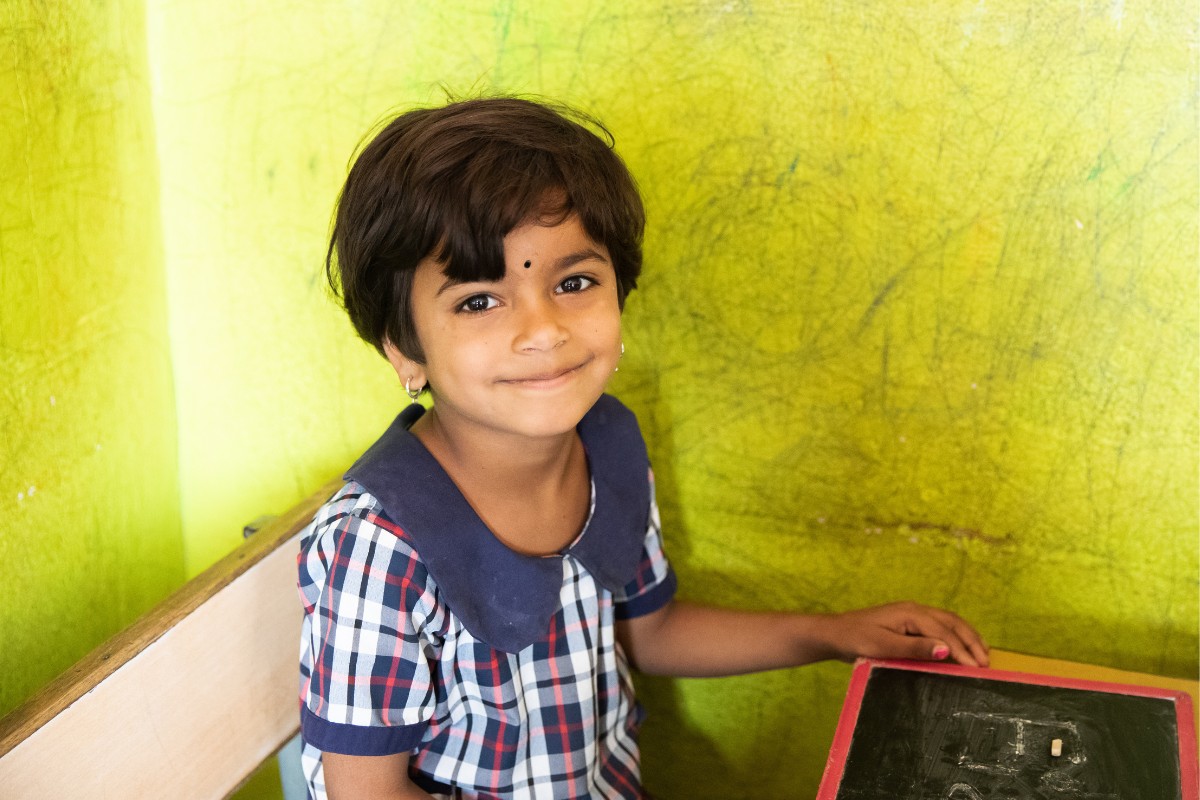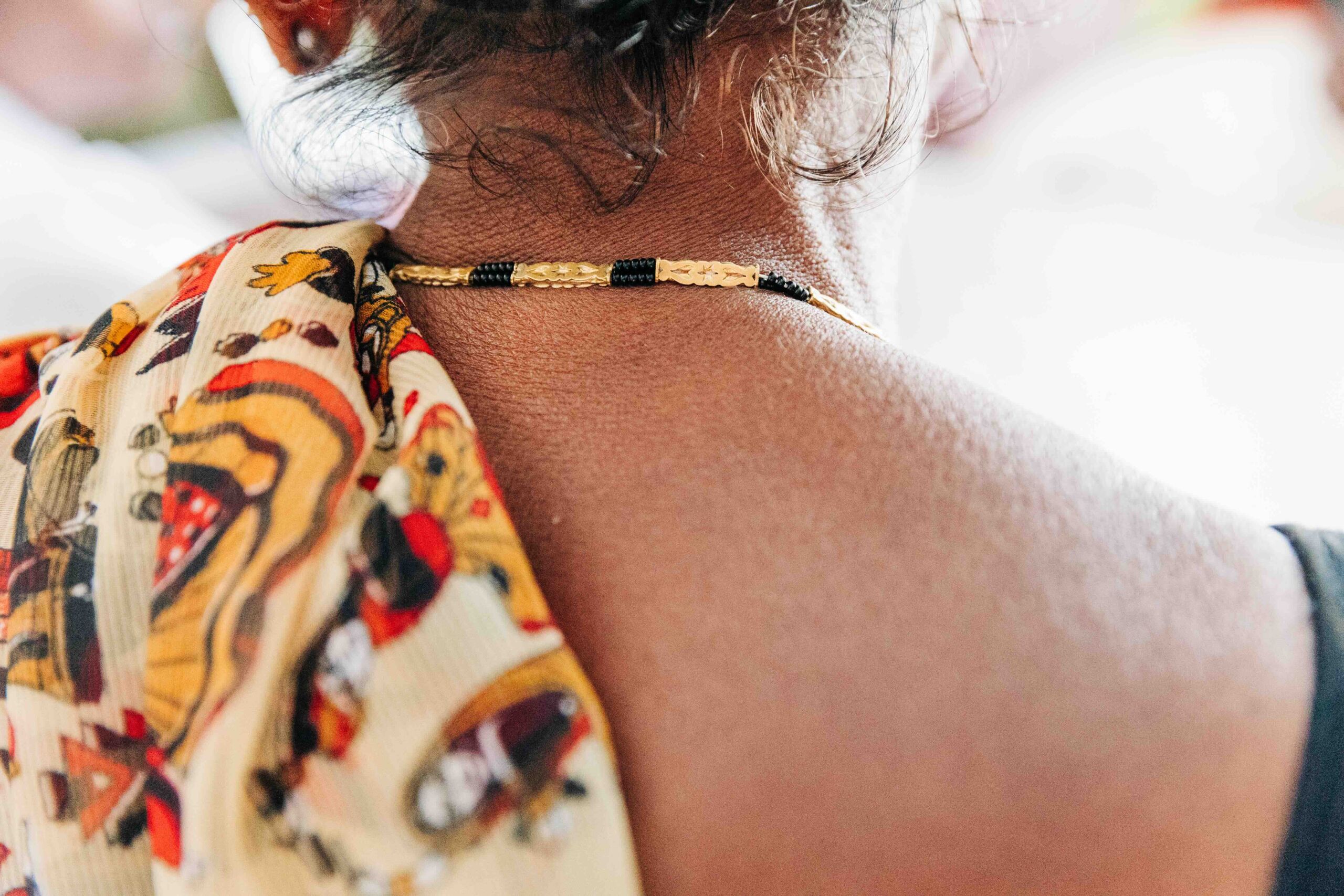
Zaina is like any other five-year-old girl.
She loves to play. She meets up with her sweet little friends in her village’s dusty, uneven streets, and the make-believe adventures begin. When the sun goes down, she watches her mother wield kitchen tools with finesse. The shiny pots, the wooden spoons, the boxes of aromatic spices. Her mother is her hero. She longs to be like her. Occasionally, she quietly and carefully looks through her mother’s collection of sari dresses, chooses one with the brightest colors, and wraps the nine feet of silky fabric around herself, eager for the day when she will wear one of her own. Her life as a five-year-old is simple yet idyllic. She smiles more than she frowns and laughs more than she cries.
One day, as usual, Zaina met her friends for their daily adventure, and one member of her girl gang wasn’t there. She wondered what was wrong. Was she sick? Did her mother need extra help with the household chores? She ventured over to her friend’s small home to find out.
“Where is my friend?” she asked her friend’s mother politely.
“She’s not here,” her mother answered. “She’s gone to work.”
Work? Zaina was confused. Her friend was only five years old. What work could she be doing? She had heard of some girls going to work with their parents in the fields picking vegetables, but that was not what her friend’s mother did. In fact, her friend’s mother always looked exhausted, sometimes had cuts and bruises on her face, and often went to the local medical clinic for treatment. Rough-looking men came in and out of her friend’s home almost every day. Zaina didn’t know why they were there, but her youthful intuition told her to stay away.
She had honed this intuition because of her mother, who suffered the same fate. When the men came to Zaina’s house, her mother urged Zaina to leave and play with her friends, even at night.
What could be happening? Her innocent five-year-old mind could not put the pieces together. She just couldn’t understand. So, she resumed her days of play with her remaining friends. She continued watching her mother cook. Her dreams of owning her own sari didn’t end.
A couple of months later, a friendly woman came to Zaina’s home to talk to her mother. She was the most beautiful woman Zaina had ever seen. She wore a wide, bright smile and gently put her hand on Zaina’s mother’s shoulder while they were talking. The woman’s eyes were kind, and Zaina immediately felt loved in this woman’s presence.
A few weeks later, with tears in her eyes, yet a smile on her face, Zaina’s mother took her to a nearby school. Zaina was delighted to receive a neatly pressed school uniform and a brand-new slate with fresh sticks of pure white chalk. She joined hundreds of other children who sang songs, recited poems, and neatly wrote the letters called A, B, and C. It became the happiest time of Zaina’s life!
She stayed at that school for 12 years. She graduated. She went on to university and got a teaching degree. Today, she teaches other young children the same songs and poems and the same letters A, B, and C. She cooks her own meals, wears her own saris, and has a daughter of her own, to whom she became the hero.
Why did Zaina’s life, which was at risk of disaster, turn out so well? Why didn’t the same traffickers who destroyed the life of her precious five-year-old friend come for Zaina?
Because a DFN social worker got there first.
That dedicated social worker, herself having been rescued from sex trafficking, herself having been given an opportunity to have her life restored, got there to intervene in Zaina’s story first, before Zaina could be dedicated into the ritualized system that had claimed her mother and awaited Zaina.
Instead? Zaina received education and healthcare and was able to claim a life that matched her five-year-old hopes and dreams.
This is our mission at Dignity Freedom Network. We want to get there first. We want to get there before young girls like Zaina are forced into a system of trafficking that will steal their innocence and their futures.
You can make this happen. For just $22, you can protect vulnerable girls, women, and families. You’ll provide education and healthcare, two of the most important factors in keeping children safe. You can give them the life they were created to live.
You, like that dedicated social worker, can get there first.
Yes! Tell me more about how I can Get There First.
You can also join our dedicated prayer team. You’ll receive a monthly email with the most urgent needs for our brothers and sisters of India. Sign-up here.





Get Social